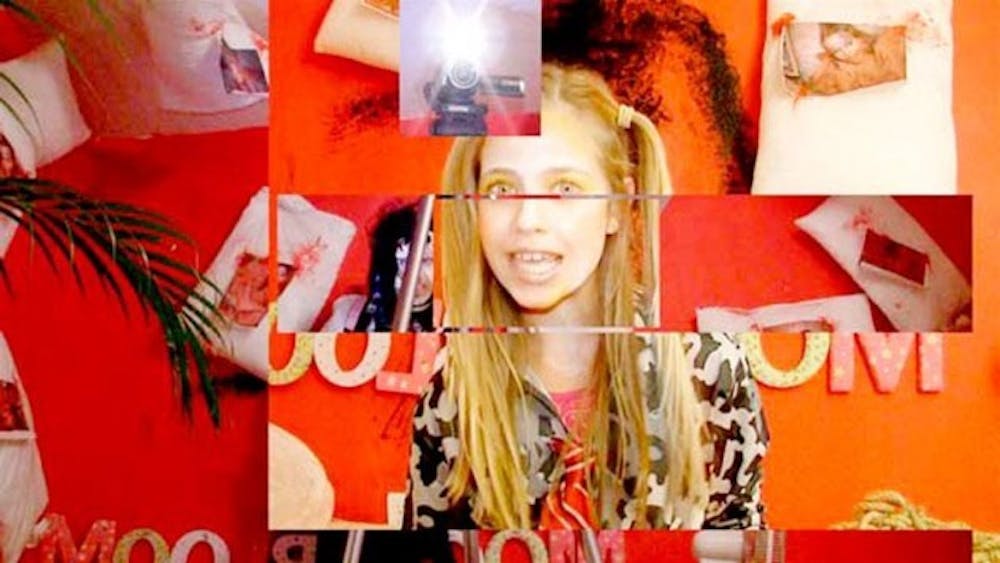Queer Art is a subject that has been tenuously studied for decades. Two artists brought the topic to UB in a high-speed fashion last Thursday.
Artists Ryan Trecartin and Lizzie Fitch presented The Leslie Lohman Museum of Gay and Lesbian Art showcase at the CFA. The two-hour long presentation showed works of queer art that captivated a packed audience.
The event included a showing and discussion of their latest creation, Any Ever - a body of work comprised of seven autonomous, interrelated movies that function together as a whole.
Taking over three years to produce, Any Ever features heavily symbolic proliferations, queer aesthetics, and suggestions of the destruction of cultural binaries.
"It was all shot in Miami," Trecartin said. "We rented a house that we lived in and used as a place of production. We lived inside the set and kind of squatted there without any of the things that were personal to us."
The film features a very fast-paced style; multiple videos play on the same screen accompanied by sped-up, heightened audio. This adds the sense of incomprehensibility they strive for.
"Especially when it's the first time you're watching it," Fitch said. "The speed is going in a way where you only have enough time to process what you've just heard, so you miss the next thing. But once you go back into it you already have that piece so you add on to your collective memory of what you've just watched. This changes the read of what you're watching a lot of the time."
Praised for the use of both high visual and audio energy to show the clash of socio-political prototypes and identities, Any Ever's abstractness and quick tempo enthralled the audience.
"Ryan and Lizzie's art changes the discourse by, curiously, a proliferation of possibilities," said Jonathan Katz, director of the Visual Studies program at UB. "No longer is opposition the hallmark of being progressive, now to be progressive is to swamp the power binary with as many possibilities and permutation as their fevered imaginations can conceive."
Trecartin and Fitch's work offers viewers an experience that is rarely had with any other art forms.
"Their work breathes with multiple selves," Professor Katz said. "A cycling through of permutations on difference that leads the viewer to the single, inescapable conclusion of any thinking person: that we're all different and we're all the same."
Trecartin is no stranger to this level of acclaim; his work has been featured in New York at The New School and London's Saatchi Gallery, while Any Ever has been seen at the Museum of Modern Art in New York City and the Museum of Contemporary Art in Los Angeles.
Cat Dawson, a doctoral student in the Visual Studies department, was happy that Trecartin has been able to produce high-quality art throughout his career.
"It is wonderful to hear that he is so intellectually and conceptually engaged in his work," Dawson said "It is stunning. The depth of complexity that exists in his work is really heartening and a beautiful and wonderful challenge."
With senses on the verge of overload, the audience left the showcase with a new, and more informed, view of the complexities and innovation of queer art.
Email: arts





